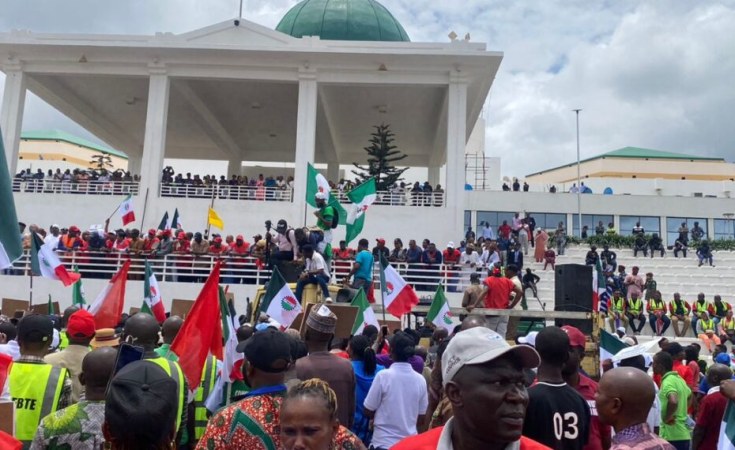While President Tinubu acknowledged that the reforms were difficult for Nigerians, he shared the optimism that they hold the key to transforming the economy and advancing prosperity among the populace.
President Bola Tinubu, in his first speech since his inauguration on Monday, unveiled a raft of interventions to provide succour to the austerity that followed the economic reforms introduced by his administration in its first two months.
While he acknowledged that the reforms were difficult and painful for Nigerians, he affirmed they were inevitable, given that they hold the key to transforming the economy and advancing prosperity among the populace.
Here are the key highlights of his address:
1. Manufacturing
To strengthen the manufacturing sector and increase its capacity to expand and create good-paying jobs, the government plans to spend N75 billion in the next nine months starting from July 2024. The scheme will offer loans to 75 scalable enterprises with enormous prospects at 9 per cent per annum repayable over a maximum period of 60 months. Working capital credits with a 12-month tenor are also available.
The idea is to substantially pivot economic growth through the real sector of the economy, a push that could help quicken Nigeria's sluggish industrialisation and expand the GDP if rigorously pursued.
2. MSME Support
Financing in the sum of N125 billion is to be allocated to MSMEs and the informal sector. The lifeline is crucial to easing the pangs of limited funding for a sector that accounts for as much as 58 per cent of Africa's largest economy but gets little capital from lenders.
Under this arrangement, 1 million micro-scale businesses will get a total of N50 billion between now and next March. President Tinubu said his administration aims to grant N50,000 each to the 774 local governments of the federation.
3. N75 Billion Startup Intervention
A fund of N75 billion is proposed for 100,000 start-ups and MSMEs. Promoters of such businesses can get between N500,000 to N1 million at 9 per cent annually, repayable over 36 months. The initiative will free up cash for early-stage businesses offering smart and innovative solutions to access single-digit loans to scale their operations.
4. Agricultural Support
The National Assembly has approved N500 billion for all-year-round farming on 500,000 hectares of farmland. From the outlay, N50 billion is to be granted each for the production of rice and maize on 150,000 hectares. Wheat and cassava will also get N50 billion each for cultivation over 100,000 hectares. That is part of the broader response to the state of emergency declared by the president on food production this month after food inflation hit 25.3 per cent year-on-year in June.
5. Transport Support
The Nigerian Government has put aside N100 billion to purchase 3,000 twenty-seater buses powered by compressed natural gas for deployment in all the states in the next nine months.
Transport companies across the states are allowed to obtain credit at 9 per cent per annum repayable over within five years based on "the intensity of travel per capital." It could help provide affordable transportation across Nigeria following sharp spikes in travel fares after the government abolished costly fuel subsidies in May.
6. Minimum Wage
A new minimum wage is in the pipeline, and the president has given his word that immediate implementation will follow once it concludes talks with labour unions.
Much as increased pay is necessary for workers to boost the disposable income needed to soften the dire impact of fuel subsidies and foreign exchange revamp, it will be expected to worsen the inflationary pressures, which those two factors have already set in motion.


